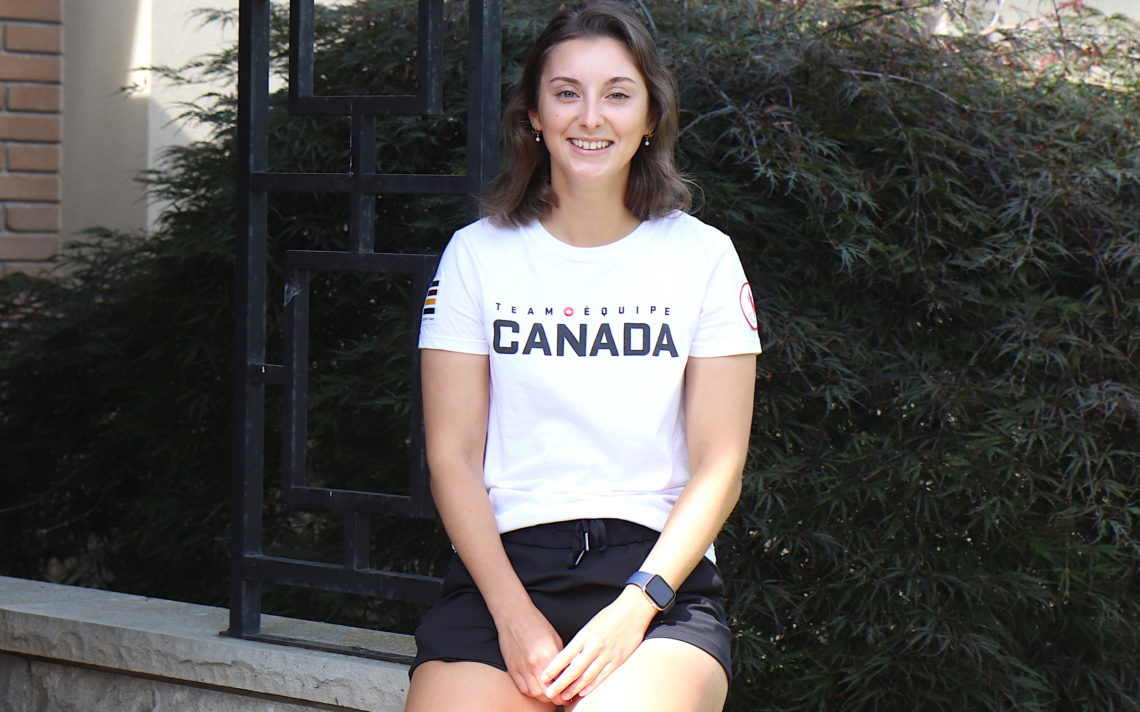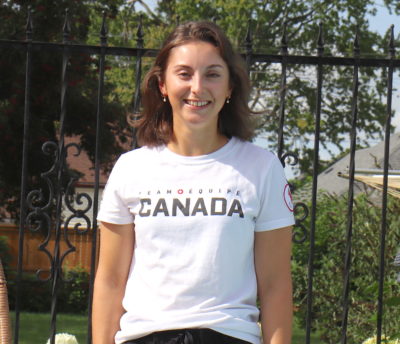
Emotional Paralympics for Court
Competing in the 2020 Tokyo Paralympics was an emotional time for St. Catharines coxswain Laura Court.
“I think I teared up almost every day but not in a sad way,” the 24-year-old St. Catharines native said. “The first little while I was emotional about being there and finally making it to something that I had been working towards for awhile. At first it was why am I being so emotional about this, it is just a race. Towards the end, I was thinking that it was OK to live in and sit in the feelings. That is an important part to experience.”
She was thrilled with the entire experience.
“I don’t have another Games to compare it to but it was awesome,” she said. “Even with COVID, it still felt safe and we were still able to talk to people from other countries, obviously socially distanced. It didn’t feel like I was missing out on anything. The only thing that would have been cool to do was go to the closing ceremonies but we had to get out of there within 48 hours.”
Her only perceptions from Tokyo came from riding the bus from the rowing venue to the athletes village.
“It was beautiful at the village. Our apartment building was right on the ocean and it was really pretty.”
 The PR 3 mixed coxed four crew (rowers with residual function in the legs which allows them to slide the seat and athletes with vision impairment), made up of Court, Bayleigh Hooper (Peterborough Rowing Club), Andrew Todd (North Star Rowing Club), Victoria Nolan (Victoria City Rowing Club) and Kyle Fredrickson (University of Victoria Rowing Club), placed fourth in the heats, fourth in the repechage and second in the B final to finish eight overall.”
The PR 3 mixed coxed four crew (rowers with residual function in the legs which allows them to slide the seat and athletes with vision impairment), made up of Court, Bayleigh Hooper (Peterborough Rowing Club), Andrew Todd (North Star Rowing Club), Victoria Nolan (Victoria City Rowing Club) and Kyle Fredrickson (University of Victoria Rowing Club), placed fourth in the heats, fourth in the repechage and second in the B final to finish eight overall.”
“I remember our first race coming off the water being disappointed in our best not being good enough,” Court said. “That was hard to swallow but we wanted to go out there every day and put our best foot forward every time we went out there. At the end of the regatta, we were happy that we were able to do that.”
Court and her crewmates felt the heat got to them in the heats.
“We had practised in it and done a lot of acclimatization in Victoria before we went but you can’t fully prepare for that,” she said. “Between the heats and the repechage, we adjusted our warmup so we weren’t on the water for as long and we adjusted our cooling strategies. I felt the reps and the finals were completely different races for us.”
Court feels the entire sport of para rowing has evolved since guiding Canada’s PR 3 mixed coxed four to a bronze medal at the 2018 world championships.
“It was a great experience seeing how the whole sport of para rowing is taking steps in the right direction with the boats getting closer. That’s really exciting.”
The coxie of Canadian women’s eight crews that won back-to-back gold medals at the under-23 world championships described the Paralympics as a learning experience.
“I had a really good time learning about myself as an athlete while I was there. It was things that you don’t expect to learn and that was a really important part of going.”
The major lesson was adapting to change.
“As a coxie you work towards a certain style and you kind of make it your own,” she said. “Recently I have been working on not talking as much.”
She would give her crew something to focus on and then let them focus on it for a little while before she started talking about something else.
“That is what I did in the first race. I don’t know if I consciously made the decision to change my technique but I was talking a lot more in the rep and the final,” Court said. “I learned that it is important to adapt whether you realize you are doing it or not.”
The next step in her progression as a coxswain is to keep learning about that adaptability and ability to change on the fly.
“I am going to continue to work on that but it is a little hard to do that when you are practising as compared to racing. I am hoping to create those opportunities for myself so I can be prepared when it happens in real time.”
It is already more than a year into the next quadrennial and Court is taking a break at home before heading back to the national training centre in Victoria in January.
“I know some athletes have different plans and it is hard to know who is coming back and what is going to be available,” she said. “I would really like to stay with the para team but it is a little different for them. My teammates have families and people are going to school so it is hard to know who is going to be back.”
While at home, she is starting to take online business courses from Queen’s and she will get her feet wet in her after-rowing career by working in human resources at her father Michael Court’s business.

























